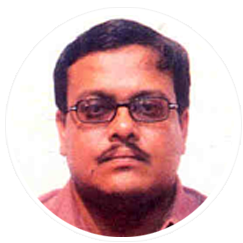Gender Equality and Governance

Gouri Rajagopal
Fellow

Anirban Ghose
Fellow
TRIF seeks to expand and deepen its Public Policy Engagement for scale-impact on the drivers of rural transformation. Gender equality and inter-linked issues of local governance is critical to the transformative agenda we have for villages. Poverty is often intervened from ‘material deprivation’ perspective, we know from evidences that deprivation is multi-dimensional and strongly anchored in the agency of the person, there economic pathways or ‘household’ as intervention unit do not accrue/ impact household members equitably. Focus of this TRIF Unit is to support colleagues and teams in action pilots and various program assistance unit to integrate perspective on gender in community engagement pathways impacting women’s condition and position both within households and outside in the immediate society. Enhanced confidence, mobility, solidarity contribute to agency outcomes, these however, could easily be constrained by the institutional structures of society eg. women’s property ownership. Our intent is to foster and institute pathways which address the material, the cultural and ideological dimensions underlying Gender justice in all of TRIF’s work. We at TRIF intend to build knowledge/ insights / solutions developed in action-pilots through continuing and deepening the engagement in development programmes, gender equality and inter-linked issues of local governance will be an integral component in these engagements. In order to bring transformative change, concentrated efforts need to be made to challenge gender norms and build women’s agency in family and rural society through a conducive ecosystem created through targeted policy action. In addition to supporting TRIF’s action pilots and programme assistance to public programme ‘Unit on Gender Equality and Governance’ will focus on gathering evidences from existing body of knowledge by building multidisciplinary alliance and advocacy; strengthening public policy initiatives through evidence-based policy action research and building gender-focussed cognitive frameworks for grassroots practitioners. The Unit will also actively engage in the wider dissemination of its work to shape the discourse for creating a just and equal society for women in rural India highlighting the intersectionality of hierarchies in our villages.
Over the past decades, there have been significant measures taken by the government of India towards gender equality particularly on women’s participation in governance. The 72nd and 73rd Constitutional Amendments of 1993 ensured one-third reservation for women at the Panchayat level. Additionally, the National Policy for the Empowerment for Women is focussed on ensuring ‘mainstreaming of women’s perspectives in all development processes, as catalysts, participants and recipients. Wherever there are gaps in policies and programmes, women-specific interventions would be undertaken to bridge these.’ Further, in alignment with the Sustainable Development Goals 2030, a new draft of the National Policy for Women (2016) was unveiled to create ‘a society in which, women attain their full potential and are able to participate as equal partners in all spheres of life’. Although these policies were and continue to be critical efforts, there have been various challenges that have impeded fidelity in their implementation.
Programme Unit on Gender Equality and Governance
Unit will bring together practitioners, researchers, policymakers, academics, administrators and other experts to build exchange of ideas, shape narrative in shaping discourse for just and equal society with conditions for every person to express their potentialities. This is an internal unit of TRIF driven by our core values of Justice, Equality, Impact. The Unit anchored by experienced professional with deep expertise and experience and supported by experts with past work will closely work first with TRIF colleagues in engendering development perspective and engagement processes and support them in building business processes that integrates engendering in ongoing work. Unit bring in evidence-based practices addressing the challenges facing our society drawing on existing body of knowledge from movements and experts to introduce evidenced pathways and interventions for a more equitable society.
Programme
The intent for creating a dedicated internal unit is provide required focus and effort to centrestage gender and governance in our work. The immediate context is our ongoing work through multisectoral and multidimensional engagement in Central and East India. The focus is:
To anchor demonstrative prototype development work with action pilots present 4 states – Jharkhand, Madhya Pradesh and Uttar Pradesh. The role of Unit will build capacities of colleagues, existing community and supportive mechanisms at grassroots to provide locally- evolved demonstrative, learning and immersion spaces on issues pertaining to gender. Action- research Project apart from capacity development of systems will leverage the demonstrated prototypes. For example the Unit will support teams working with TANRLM< TAUPSRLM, Model Cluster Level Federations within the NRLM structure with outlier results to showcase and build ground-up guidebook for developing gender-forward Cluster Federations.
Focus is on building cognitive/conceptual/theoretical framework(s)and drawing practical practitioner level guidebooks, learning materials, toolkits, training material to support enhancing competencies, skills and behaviour required for facilitating gender consciousness in community collectives from action research and relevant work in the space, will entail :
i) Building Community of Practice with an aim to build systems and protocols to ensure a safe and secure environment for rural women within local governance structures while simultaneously building capacities of practitioners.
ii) Identification of elements in practice contributes to knowledge, followed to ways in which such knowledge may be crystallised from current practice and is made available to stakeholders
iii) Identification of the universe of knowledge that impinges on practice, followed by ways to draw it in to inform and improve practice
The co-created knowledge products, process handbooks, digital technology solutions will be made available to stakeholders and larger public in a structured manner.

